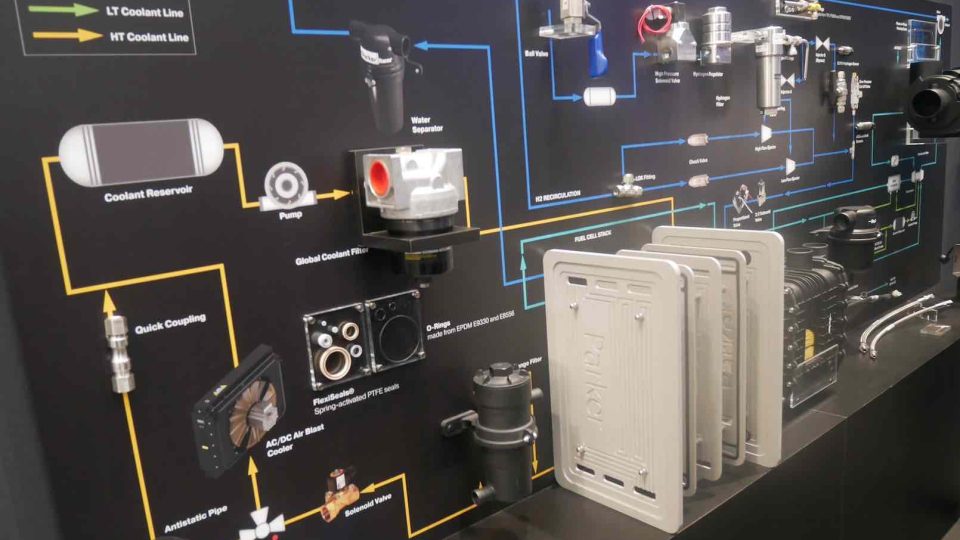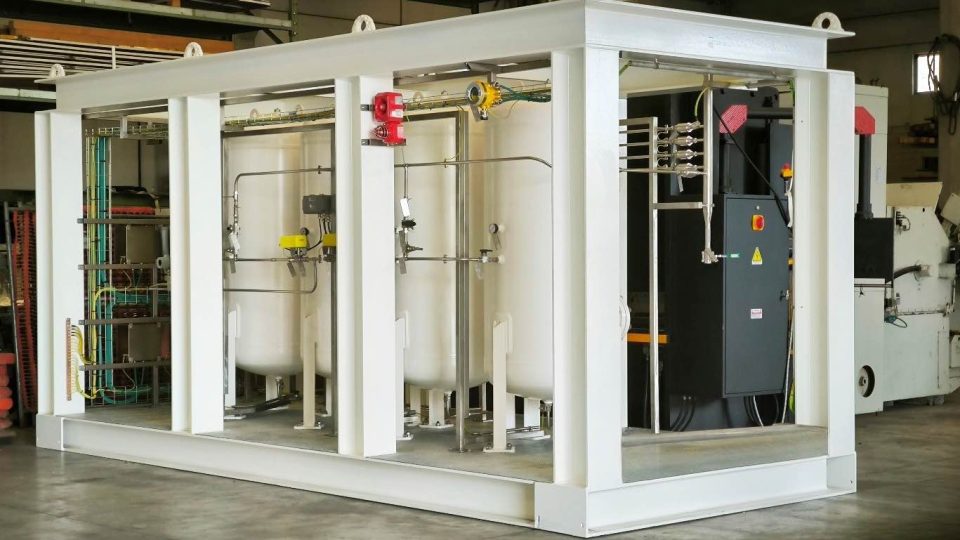Alfa Laval presents 2023 annual and sustainability reports
The biggest transformation decision made in Alfa Laval in 2023 was to form a dedicated business unit for Fuel cell and Electrolyzer technology. The plate technology needed in the hydrogen economy is a version of what Alfa Laval has done for decades in the heat exchanger businesses. If the project is successful, it will be an important addition as a new technology platform for the Group. In parallel the development in earlier announced projects continue as planned.

Alfa Laval has published its annual and sustainability reports. For the most part, 2023 became a year of operational stability for Alfa Laval. After a several years of exceptional volatility due to the pandemic and geopolitical turmoil, global supply chains normalized, and customer service and delivery lead times improved through the year. Cashflow was a good indicator of the improved business conditions and increased to a record level of 10 BSEK for the full year. Although it was expected, it did confirm the strength of Alfa Laval´s operating model.
The market conditions were generally favorable across all three divisions, but still with some demand fluctuations.
In the Marine division demand was strong in all key areas and resulted in an order intake of 24 BSEK, a growth of 23% compared to 2022. Contracting of new ships continued on a good level and will likely reach approximately 2000 vessels when the final count is ready. The mix was good, with a strong re-bound for product tankers. The trend towards green fuels, and multi-fuels, continued and had a positive impact on orders in many parts of the business. Service grew to a new record level, impacted by the high utilization levels of the merchant fleet and freight rates being high in almost all areas.
In the Food & Water division the demand situation was mixed. The weakness in the transactional business which started already in mid-2022, continued. The business volume with channel partners decreased, especially in China. On the other hand, the project business was exceptionally strong and with the recent acquisition of Desmet the division had a record year with an order intake of 26.4 BSEK, 20% higher than in 2022. The division will enter 2024 with a strong order book for projects, and a lower utilization rate in certain production units.
The Energy division continued to grow with support from the global energy transition and demand for energy efficient solutions. At the same time the traditional natural gas business had a strong recovery, as a needed transition fuel away from fossil dependency. The first signs of a growing global capital allocation towards the energy transition became evident with orders being booked in key verticals like hydrogen production, carbon capture, and e-fuels. From a climate point of view, the transition is going too slow, but gradually the pace of final investment decisions is increasing. On the negative side, after a number of years of strong demand the European heat pump market weakened significantly in the second half of 2023 due to lower gas prices and the termination of certain government subsidy programs.
The order intake of 20.4 BSEK, also a new record level, was strong given the market conditions. The total order intake of 70.7 BSEK, corresponding to a growth of 21%, confirms the competitiveness of the current product portfolio. During several years Alfa Laval’s growth rate has been above market average, leading to stronger market positions and scale advantages.
Alfa Laval towards sustainability: a new business unit dedicated to fuel cells and electrolyzers
The biggest transformation decision made in Alfa Laval in 2023 was to form a dedicated business unit for Fuel cell and Electrolyzer technology. The plate technology needed in the hydrogen economy is a version of what Alfa Laval has done for decades in the heat exchanger businesses. If the project is successful, it will be an important addition as a new technology platform for the Group. In parallel the development in earlier announced projects continue as planned.
The Oceanbird wind propulsion solution for large ships is advancing well and the first pilot installation is expected early 2025. The OceanGlide project, aiming to reduce water friction under the ship’s hull is in commercial phase with several orders signed in 2023. The recently launched “single use” separation solution for the biotech industry is in the early stage of market penetration and grew well during the year. There are many more projects in the pipe line, providing Alfa Laval with a future toolbox to lead the industrial transformation towards 2030. The target to reach 10 BSEK from these new technologies remains, as communicated at the Capital Markets Day in 2022.
Read also: Alfa Laval joins the Hydrogen Council









